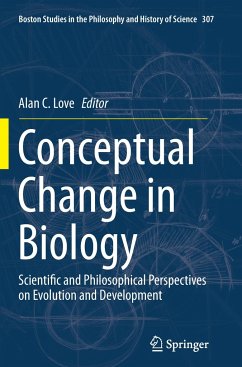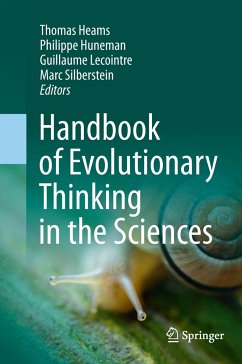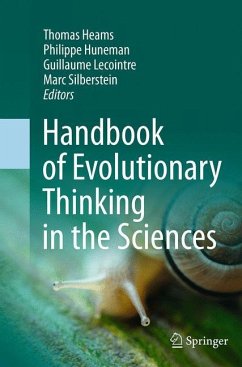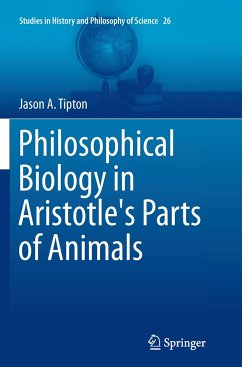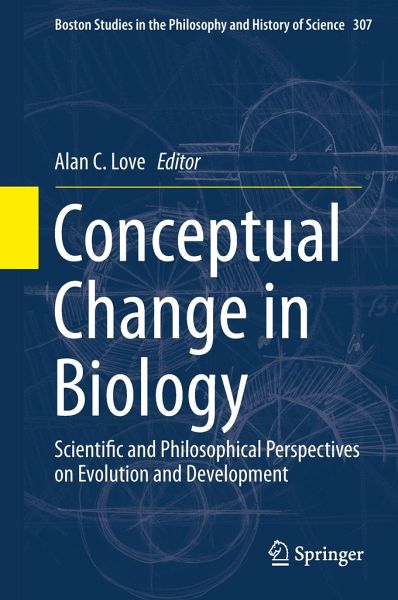
Conceptual Change in Biology
Scientific and Philosophical Perspectives on Evolution and Development
Herausgegeben: Love, Alan C.

PAYBACK Punkte
49 °P sammeln!
This volume explores questions about conceptual change from both scientific and philosophical viewpoints by analyzing the recent history of evolutionary developmental biology. It features revised papers that originated from the workshop "Conceptual Change in Biological Science: Evolutionary Developmental Biology, 1981-2011" held at the Max Planck Institute for the History of Science in Berlin in July 2010. The Preface has been written by Ron Amundson.In these papers, philosophers and biologists compare and contrast key concepts in evolutionary developmental biology and their development since ...
This volume explores questions about conceptual change from both scientific and philosophical viewpoints by analyzing the recent history of evolutionary developmental biology. It features revised papers that originated from the workshop "Conceptual Change in Biological Science: Evolutionary Developmental Biology, 1981-2011" held at the Max Planck Institute for the History of Science in Berlin in July 2010. The Preface has been written by Ron Amundson.
In these papers, philosophers and biologists compare and contrast key concepts in evolutionary developmental biology and their development since the original, seminal Dahlem conference on evolution and development held in Berlin in 1981. Many of the original scientific participants from the 1981 conference are also contributors to this new volume and, in conjunction with other expert biologists and philosophers specializing on these topics, provide an authoritative, comprehensive view on the subject.
Taken together, the papers supply novel perspectives on how and why the conceptual landscape has shifted and stabilized in particular ways, yielding insights into the dynamic epistemic changes that have occurred over the past three decades. This volume will appeal to philosophers of biology studying conceptual change, evolutionary developmental biologists focused on comprehending the genesis of their field and evaluating its future directions, and historians of biology examining this period when the intersection of ev
olution and development rose again to prominence in biological science.
In these papers, philosophers and biologists compare and contrast key concepts in evolutionary developmental biology and their development since the original, seminal Dahlem conference on evolution and development held in Berlin in 1981. Many of the original scientific participants from the 1981 conference are also contributors to this new volume and, in conjunction with other expert biologists and philosophers specializing on these topics, provide an authoritative, comprehensive view on the subject.
Taken together, the papers supply novel perspectives on how and why the conceptual landscape has shifted and stabilized in particular ways, yielding insights into the dynamic epistemic changes that have occurred over the past three decades. This volume will appeal to philosophers of biology studying conceptual change, evolutionary developmental biologists focused on comprehending the genesis of their field and evaluating its future directions, and historians of biology examining this period when the intersection of ev
olution and development rose again to prominence in biological science.




